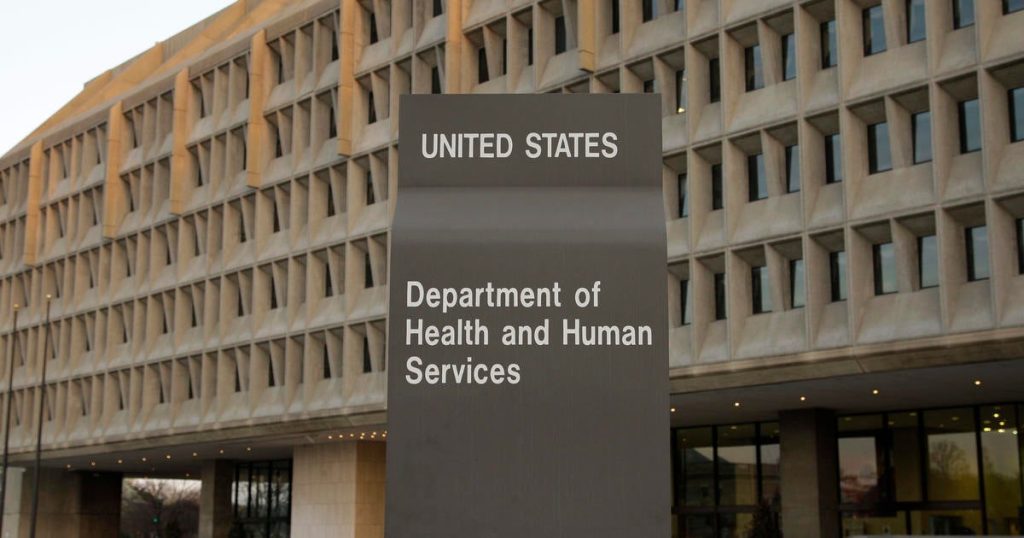Introduction: A Tale of Executive Orders and Global Health Communication
In a significant turn of events, the Centers for Disease Control and Prevention (CDC) found itself at the center of a directive that halted its communications with the World Health Organization (WHO). This move was part of a broader executive action taken by then-President Donald Trump, which had far-reaching implications. The order, focusing on gender ideology, inadvertently led to a decision that affected the flow of crucial health information. The CDC, a pivotal player in global health, was instructed to cease interactions with the WHO, marking a shift in international health cooperation. This decision, while controversial, underscores the complex interplay between political directives and global health governance.
Executive Order and Its Implications: A Shift in Health Policy
President Trump’s executive order on gender ideology set off a chain reaction within federal health agencies. The order compelled the Department of Health and Human Services (HHS), including its components like the CDC and the Food and Drug Administration (FDA), to remove certain webpages containing medical information. This removal was aimed at aligning the agencies’ content with the administration’s stance on gender ideology. However, this directive led to significant concerns among healthcare providers who relied on these resources for patient care and research. The abrupt removal of information highlighted the delicate balance between political agendas and the dissemination of critical health data.
Impact of Webpage Removal: A Setback for Healthcare Providers
The removal of these webpages had a profound impact on healthcare professionals, particularly those engaged in direct patient care and research. Doctors for America, a nonprofit organization, expressed deep concerns about the loss of access to essential information. These webpages were not just repositories of data; they were lifelines for clinicians who depended on them to provide accurate diagnoses and treatments. The absence of this information posed a significant barrier, especially for underprivileged patients who may not have access to alternative resources. This disruption in information flow threatened to exacerbate existing health disparities, underscoring the critical need for accessible healthcare data.
Lawsuit by Doctors for America: Advocating for Patient Care
In response to the removal, Doctors for America took legal action, filing a lawsuit against the HHS, CDC, and FDA. The organization argued that the removal of these webpages violated federal law and impeded their ability to provide adequate care. They emphasized that the loss of this information could lead to delayed or foregone treatments, particularly for severe and life-threatening conditions. The lawsuit was a call to action, urging the restoration of the webpages to maintain the integrity of healthcare services and ensure that all patients, regardless of background, receive the care they deserve.
Judge’s Decision: A Victory for Healthcare Transparency
U.S. District Judge John Bates sided with Doctors for America, granting a temporary restraining order that compelled the agencies to restore the removed webpages. In his ruling, Judge Bates highlighted the potential harm caused by the removal, particularly to underprivileged Americans who rely on these resources for healthcare. He emphasized that the challengers were likely to succeed in proving that the agencies’ actions were unlawful. The restoration of the webpages was ordered by a specific deadline, underscoring the urgency of the situation and the importance of maintaining access to vital health information. This decision was a significant victory for transparency and the principle that healthcare information should remain accessible to all.
Conclusion: Reflections on Policy, Judiciary, and Healthcare Accessibility
The judiciary’s role in this case serves as a check on executive power, ensuring that actions taken by federal agencies do not undermine public health. The decision highlights the importance of an independent judiciary in maintaining the balance of power and protecting the rights of citizens. Furthermore, it underscores the crucial role of healthcare information in providing equitable care. As the situation continues to unfold, this episode serves as a reminder of the intricate dance between political directives and public health, and the necessity of transparency in maintaining trust in healthcare systems.












